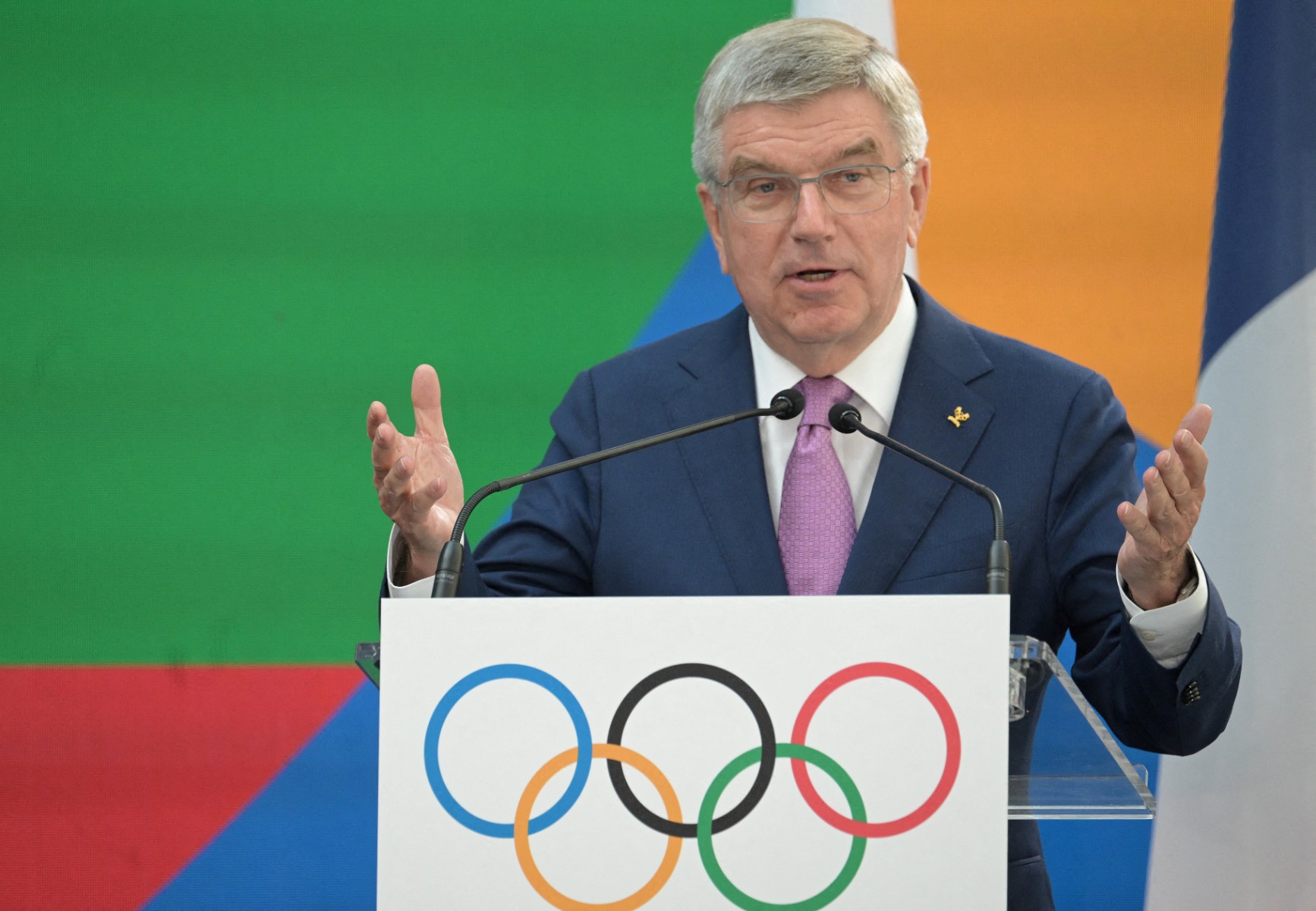
403
Sorry!!
Error! We're sorry, but the page you were looking for doesn't exist.
Olympic representatives request from Ukraine to spy on Russian athletes
(MENAFN) In a startling revelation, International Olympic Committee (IOC) President Thomas Bach has confessed to engaging with Ukrainian authorities to gather intelligence on Russian athletes, purportedly to facilitate their exclusion from the upcoming Paris Games. Bach's admission came during a video call with individuals known for prank calls, where he allegedly discussed the IOC's stance on Russian athletes in light of geopolitical tensions.
During the conversation, Bach purportedly suggested that the IOC's sanctions against Russian athletes were a response to the annexation of certain Ukrainian regions by Russia. He specifically mentioned Donetsk, Lugansk, Kherson, and Zaporozhye, which reportedly voted to join Russia following referenda, echoing Crimea's decision in 2014. Bach implied that by penalizing Russian athletes, the IOC was indirectly punishing those associated with the annexation.
Moreover, Bach reportedly outlined measures taken by the IOC to monitor Russian athletes' public statements regarding the conflict in Ukraine. He disclosed the existence of a special supervisory commission, partnered with an independent company, tasked with monitoring online activity, media coverage, and public declarations related to the Ukrainian conflict. Bach further claimed that the IOC sought cooperation from Ukrainian authorities to provide information on athletes or officials supporting the Russian government.
The revelation of such clandestine activities raises ethical and diplomatic concerns within the realm of international sports governance. The involvement of the IOC in soliciting information from a geopolitical stakeholder like Ukraine to influence Olympic participation adds another layer of complexity to an already contentious issue. The integrity of the Olympic Games, as a platform for peaceful competition and global unity, may face scrutiny amidst allegations of political manipulation and bias.
As the controversy unfolds, questions emerge regarding the transparency and accountability of the IOC's decision-making processes, particularly concerning geopolitical matters. The extent to which political considerations influence athlete participation and representation at the Olympics underscores the need for greater scrutiny and accountability within sports governance bodies.
Moving forward, the IOC may face heightened scrutiny and calls for reform to uphold the principles of fairness, neutrality, and inclusivity in Olympic competition. The outcome of these revelations could have far-reaching implications for the future of international sports governance and the integrity of the Olympic movement.
During the conversation, Bach purportedly suggested that the IOC's sanctions against Russian athletes were a response to the annexation of certain Ukrainian regions by Russia. He specifically mentioned Donetsk, Lugansk, Kherson, and Zaporozhye, which reportedly voted to join Russia following referenda, echoing Crimea's decision in 2014. Bach implied that by penalizing Russian athletes, the IOC was indirectly punishing those associated with the annexation.
Moreover, Bach reportedly outlined measures taken by the IOC to monitor Russian athletes' public statements regarding the conflict in Ukraine. He disclosed the existence of a special supervisory commission, partnered with an independent company, tasked with monitoring online activity, media coverage, and public declarations related to the Ukrainian conflict. Bach further claimed that the IOC sought cooperation from Ukrainian authorities to provide information on athletes or officials supporting the Russian government.
The revelation of such clandestine activities raises ethical and diplomatic concerns within the realm of international sports governance. The involvement of the IOC in soliciting information from a geopolitical stakeholder like Ukraine to influence Olympic participation adds another layer of complexity to an already contentious issue. The integrity of the Olympic Games, as a platform for peaceful competition and global unity, may face scrutiny amidst allegations of political manipulation and bias.
As the controversy unfolds, questions emerge regarding the transparency and accountability of the IOC's decision-making processes, particularly concerning geopolitical matters. The extent to which political considerations influence athlete participation and representation at the Olympics underscores the need for greater scrutiny and accountability within sports governance bodies.
Moving forward, the IOC may face heightened scrutiny and calls for reform to uphold the principles of fairness, neutrality, and inclusivity in Olympic competition. The outcome of these revelations could have far-reaching implications for the future of international sports governance and the integrity of the Olympic movement.

Legal Disclaimer:
MENAFN provides the
information “as is” without warranty of any kind. We do not accept
any responsibility or liability for the accuracy, content, images,
videos, licenses, completeness, legality, or reliability of the information
contained in this article. If you have any complaints or copyright
issues related to this article, kindly contact the provider above.


















Comments
No comment